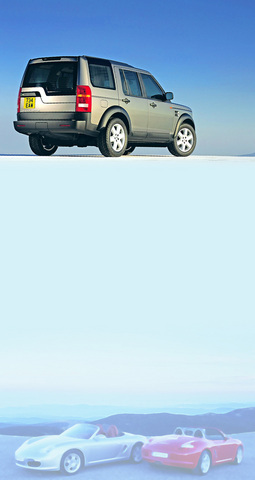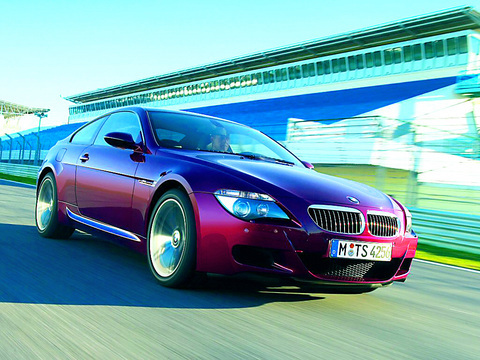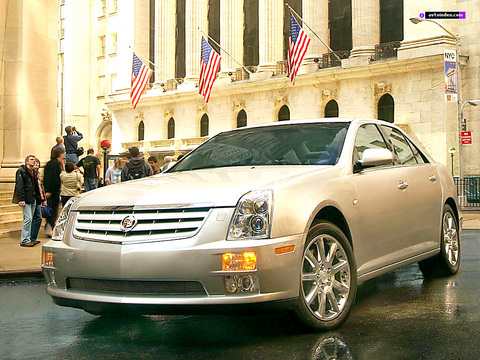It's Tomb Sweeping Day and Wang Bao-hua (王保華) and his wife had just returned from paying their respects at his father's cemetery and decided to stop at their local BMW dealership in Taipei.
"We have two daughters whose college educations are now paid for," Wang said. "Now we can finally spend some money on ourselves.
"We've driven Toyotas for years, but, when we got married we said we'd work hard to afford a comfortable retirement. So I'm here to show my wife how comfortable a BMW is!" he said with a laugh.

Like the Wang family, an increasing number of Taiwanese are looking to make the jump to a luxury car when they purchase their next vehicle. And like the majority of Taiwanese who do, they're looking at BMW and Mercedes-Benz models.
It's a prospect that thrills Huang Bang-chi (
Huang estimates that BMW Group, which sells both its flagship fleet of cars as well as Mini Cooper models, sold about 5,000 cars in Taiwan last year.

"Our sales have gotten better every year," he said.
Indeed they have. According to statistics compiled by the Taiwan Transportation Vehicle Manufacturers Association, the local car market experienced 16.7 percent growth in 2004 over the previous year. While the market for luxury automobiles remains at 7 percent of the total market, that number has grown incrementally for several years, and even continued to rise during the Asian financial crisis.
There are other indicators -- or at least a lot of optimism -- that the market will continue to grow. In 2002, four years after the two auto manufacturers merged, DaimlerChrysler established a local subsidiary to sell its Mercedes-Benz fleet of cars, infusing it with NT$1.7 billion in capital. The company now has 25 showrooms throughout the island and claims to sell an average of 7,000 cars per year. Their best has been 10,000 units in a single year.

By comparison, DaimlerChrysler Taiwan claims to sell some 500 Jeeps and Chryslers locally each year, showing that the company's focus has been on moving luxury cars off the lot.
"We've also sold two or three Maybachs every year since 2002," said a DaimlerChrysler representative named Rao, referring to the uber-luxury liner that lists at NT$20 million and can quickly go up to NT$30 million depending on what amenities the buyer selects. The difference in price between a bare-bones Maybach and a fully loaded one is five Lexus RX 330s, which list at NT$2 million.
One of the top-selling luxury automobiles in any other market, Lexus has nonetheless had a hard time making inroads into the Taiwan market compared with its success in the US, Europe or Japan.
This would seem an odd situation for the car's manufacturer, Toyota. The company boasts the best passenger car sales in the nation. Its Toyota Corolla alone accounted for 11.2 percent of all passenger cars sold last year, according to the Wards World Motor Vehicle Data annual of global car sales.
"Toyota has of course had a lot of success in Taiwan," said He Ji-yu (
Asked why Taiwanese look first to German manufacturers, He compared local taste in luxury cars with taste in wine and liquor.
"Before, the only wine we had to drink was Kaoliang and rice wine," He said. "Then in the 1980s, when people had more money and some people had a lot more money, the drink of choice became cognac. No one cared to try a better brand of rice wine."
Likewise, he believes, now that they can finally afford to eye the luxury car market.
Wang and his wife are no exception. In the BMW showroom near the campus of National Taiwan University, the couple was waiting to test drive a silver 520i. Wang's wife seemed more taken with the X3 sports utility model and had been admiring a line of BWM apparel and accessories under glass; NT$8,000 sunglasses and a NT$12,000 BMW bag.
Wang himself wanted nothing to do with bags and glasses and seemed intent on dissuading his wife from wanting a sports utility vehicle.
"We've talked about a sedan all along and now she sees the X3 and likes it more," he said with a hint of exasperation. "She's only saying that because she would rather we were looking at Mercedes."
"If you want a nice car, Mercedes are nicer," she said in a near whisper.
But Wang wants a car that's nice to drive and the BMW, he says repeating the company's slogan, is the "ultimate driving machine."
Nonsense, his wife says, whatever they buy they'll be sitting in traffic a lot more than racing down the highway. "We have one afternoon of driving home in nice weather without a lot of traffic and he thinks he needs an ultimate driving machine!'"
Being able to afford the sticker price, it would seem, doesn't make buying the car a luxury.

April 28 to May 4 During the Japanese colonial era, a city’s “first” high school typically served Japanese students, while Taiwanese attended the “second” high school. Only in Taichung was this reversed. That’s because when Taichung First High School opened its doors on May 1, 1915 to serve Taiwanese students who were previously barred from secondary education, it was the only high school in town. Former principal Hideo Azukisawa threatened to quit when the government in 1922 attempted to transfer the “first” designation to a new local high school for Japanese students, leading to this unusual situation. Prior to the Taichung First

When the South Vietnamese capital of Saigon fell to the North Vietnamese forces 50 years ago this week, it prompted a mass exodus of some 2 million people — hundreds of thousands fleeing perilously on small boats across open water to escape the communist regime. Many ultimately settled in Southern California’s Orange County in an area now known as “Little Saigon,” not far from Marine Corps Base Camp Pendleton, where the first refugees were airlifted upon reaching the US. The diaspora now also has significant populations in Virginia, Texas and Washington state, as well as in countries including France and Australia.

On April 17, Chinese Nationalist Party (KMT) Chairman Eric Chu (朱立倫) launched a bold campaign to revive and revitalize the KMT base by calling for an impromptu rally at the Taipei prosecutor’s offices to protest recent arrests of KMT recall campaigners over allegations of forgery and fraud involving signatures of dead voters. The protest had no time to apply for permits and was illegal, but that played into the sense of opposition grievance at alleged weaponization of the judiciary by the Democratic Progressive Party (DPP) to “annihilate” the opposition parties. Blamed for faltering recall campaigns and faced with a KMT chair

Article 2 of the Additional Articles of the Constitution of the Republic of China (中華民國憲法增修條文) stipulates that upon a vote of no confidence in the premier, the president can dissolve the legislature within 10 days. If the legislature is dissolved, a new legislative election must be held within 60 days, and the legislators’ terms will then be reckoned from that election. Two weeks ago Taipei Mayor Chiang Wan-an (蔣萬安) of the Chinese Nationalist Party (KMT) proposed that the legislature hold a vote of no confidence in the premier and dare the president to dissolve the legislature. The legislature is currently controlled